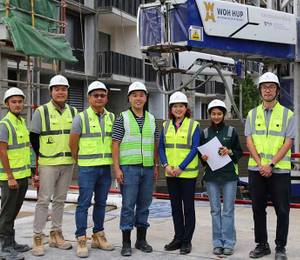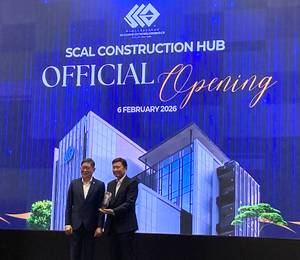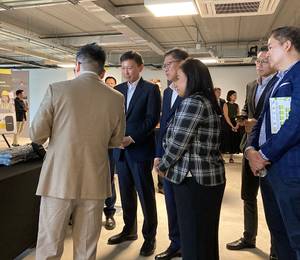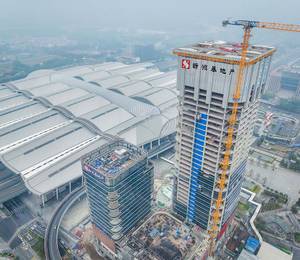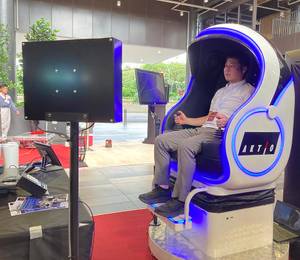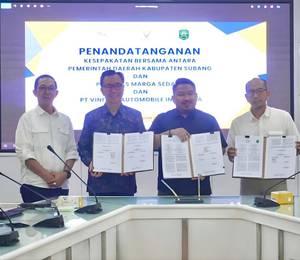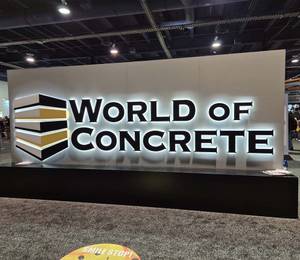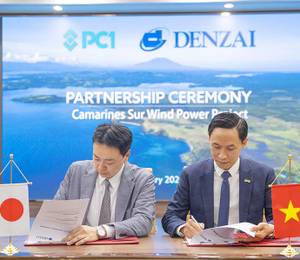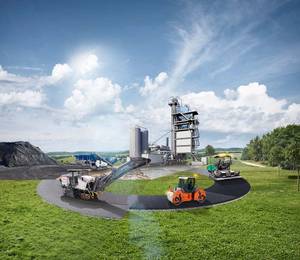Singapore’s green energy start-up, Infinity Cube, has launched its lithium-ion battery energy storage system (BESS) for use on construction sites. The company said this is the first locally designed lithium-ion BESS in the country.
In line with Singapore’s Energy Reset targets in the 2030 Green Plan, the BESS plays a critical role in conserving energy and reducing greenhouse gas emissions by enhancing the efficiency of existing power generation infrastructure. The unit’s energy management system optimises energy usage by storing excess energy during off-peak times and redistributing it during peak demand periods. This will minimise the use of additional, often more polluting, power sources.
Oh Jun Rong, founder and CEO of Infinity Cube, said, “Growth always comes at a cost. The building and construction industry is responsible for nearly 39% of global carbon emissions. Singapore, despite its small size, has a rapidly growing infrastructure and an increasing demand for energy. But we cannot let this growth make us compromise on our sustainability goals. At Infinity Cube, we want to play a pivotal role and contribute to the global goal of reducing carbon footprint.”
Infinity Cube’s BESS reduces the construction sector’s reliance on fossil fuel-powered plants through its intelligent energy resource management. It also ensures a more stable and efficient operational load for generators by balancing production and consumption, thus cutting down emissions linked to inefficient low load conditions. Compared to conventional battery generators, the BESS seamlessly integrates with existing power sources like the grid and diesel generators.
Currently available in two models with power capacities of 250 kW and 450 kW, the BESS has already reduced more than 20,000 t of carbon dioxide emission across over 20 projects, according to Infinity Cube. Featuring a compact size, flexibility and high efficiency, the unit is highly suitable for powering equipment at construction sites, including tower cranes, passenger hoists, welding machines, water pumps and cement batching plants.
“Construction sites often operate in remote locations with limited access to the main power grid. Traditional diesel generators can be unreliable, leading to downtime, high fuel costs and emissions, and noise pollution,” said Mr Oh, as he addressed the gaps that are often seen with current power supply systems.
In addition, this fully automated battery system saves operating costs due to its optimised power consumption. It seamlessly integrates with power grids and generators to ensure an uninterrupted and quiet power supply, making it ideal for emission- and noise-sensitive areas. Infinity Cube also guarantees a three-hour breakdown response time for technicians to address any malfunction.
The company is currently developing prototypes for models of other power capacities, working to enhance the flexibility and functionalities of the BESS. It is exploring expansion opportunities in global markets such as Hong Kong, Australia and New Zealand, helping to address and ultimately bridge the gaps in their clean energy landscape.

